|
Happy National Opera Day! It's an occasion to commemorate the heritage and enchanting allure of opera a truly captivating art form that has evolved throughout the centuries. Whether you're an opera enthusiast or new, to this world there are ways to engage in the festivities.
Here are some suggestions to make the most out of National Opera Day; 1. Indulge in Your Favorite Operas; Immerse yourself in the realm of opera by listening to your productions. Let the music transport you as you experience arias by Verdi, melodies by Puccini or intricate compositions by Mozart. 2. Attend an Virtual Performance; Check out opera performances or explore virtual options. Many opera houses now offer streaming services or recorded performances that can be enjoyed from the comfort of your home. 3. Host an Opera Inspired Gathering; Bring together friends and family for an opera themed celebration. Encourage costumes, set arias as background music. Perhaps even have a sing along session for those feeling adventurous. 4. Delve into Opera History; Explore the origins and development of opera. The provided historical overview offers insights. You can further explore specific periods or composers that spark your curiosity. 5. Share Your Love on Social Media; Express your passion for opera by sharing posts, on media platforms. Lets join the conversation by using the hashtags #nationaloperaday #pla #pacificlyricassociation. Share your moments from opera suggest must listen pieces or simply express your deep admiration, for this extraordinary art form. 6. Discover New Operas; If you're new to opera National Opera Day is an occasion to explore and find something. Delve into genres and styles. You might stumble upon a new favorite. 7. Trivia Night; Challenge your friends to a night with an opera twist. Put your knowledge to the test about operas, composers and significant historical events. It's a way to learn and share your passion. 8. Support Local Opera Houses; Consider attending a performance at your opera house or supporting them through donations. These establishments play a role in preserving the enchanting world of opera. Remember, National Opera Day is about celebrating the diversity and captivating beauty of this incredible art form. Whether you're singing along from home attending a performance or expressing your love, on social media platforms let the magic of opera fill every moment of your day!
0 Comments
Mark your calendars, our next Open Mic Pro is January 24 Justin Gray at the piano
PROGRAM Senta’s ballad (Der Fliegende Holländer)– Wagner Diana Farrell La fleur que tu m’avais jetée (Carmen) – Bizet Chris Eaglin Je dis que ne rien m’épouvante (Carmen) – Bizet Chelsea Seener Geh, Herz von Flandern (Bastien & Bastienne) – Mozart Tiffany Brannan/John Nettles E fra quest’ansie (Pagliacci) – Leoncavallo Jordan Fan Elsa’s Dream (Lohengrin) – Wagner Michelle Law Eri tu (Un Ballo in Maschera) – Verdi Robert Sheaffer INTERMISSION The Trees on the Mountain (Susanna) – Floyd Tiffany Brannan Cielo e mar (La Gioconda) – Ponchielli Christopher Eaglin Il m’en souvient (Béatrice & Bénédict) – Berlioz Chelsea Seener Whither Must I Wander – Vaughan Williams John Nettles Un bel di (Madama Butterfly) – Puccini Diana Farrell The Road to Mandalay – Kipling/Speaks Robert Sheaffer Vilja’s song (The Merry Widow) – Lehár Michelle Law Heaven’s Light (The Hunchback of Notre Dame) Jordan Fan As we embrace the spirit of the season, we want to extend our sincere wishes to you and your loved ones.
We celebrate the diversity of holidays that bring us together whether its Christmas, Hanukkah, Kwanzaa, Diwali or any other cherished tradition. May unity and happiness illuminate your lives like shining lights. At PLA we are truly grateful, for the warmth and support we have received throughout the year. In the spirit of generosity we have prepared a wish list for Santa Claus. Our biggest hope is to achieve our fundraising campaign goal by raising $15,000 before the end of 2023. With your kind generosity we believe that this wish can become a reality so that we can continue making an impact, in our community. https://www.paypal.com/donate?campaign_id=H7BWXPT7PNAS4 May this season be filled with love, compassion and the joy of giving. Lets come together to create lasting memories and make a difference in the lives of those who need it most. Wishing you an joyful holiday season! Warm regards, The Pacific Lyric Association team December 27, 2023
6:30pm to 8pm Forgotten Barrel Winery in Escondido Keep checking here as we keep updating the program Performing 12/27: Justin Gray at the piano PROGRAM: Song to the Moon (Rusalka) – Dvorak Caroline Nelms Ständchen – Schubert Alexis Alfaro Donde lieta usci (La Bohème) – Puccini Tiffany Brannan Du bist die Ruh – Schubert Stephen Blavet Habañera (Carmen) – Bizet Rebekah Brannan Chacun à son gôut (Die Fledermaus) – Strauss Emma Ginzel Mattinata – Leoncavallo Jordan Fan/Caroline Nelms Ave Maria – Schubert Patrick Anderson O Holy Night – Adam Chelsea Seener INTERMISSION Caballero del alto plumero (Luisa Fernanda) – Torroba Tiffany Brannan/Alexis Alfaro Vaghissma Sembianza – Donaudy Stephen Blavet The Miller’s Son (A Little Night Music) – Sondheim Emma Ginzel Merry Christmas, Darling – Carpenter Caroline Nelms If Ever I would Leave You (Camelot) – Lerner & Loewe Jordan Fan Show me (My Fair Lady) – Lerner & Loewe Chelsea Seener What are you doing New Year’s Eve? – Loesser Rebekah Brannan Have yourself a merry little Christmas – Martin/Blane Patrick Anderson There is no cover charge for the event but please register here to help the venue set up for the performance November 29
6:30pm to 8pm Forgotten Barrel Winery in Escondido Keep checking here for the November 2023 Program Performing 11/29: Anna Belaya Cynthia Leigh Tiffany Brannan Alexis Alfaro Rebekah Brannan Kerry Powell Walter Ritter Sophie Ghosn Robert Sheaffer Patrick Anderson We had quite a program last nightMichelle Law:
Dich, teure Halle! (Lohengrin) – Wagner Patrick Anderson: Nacht und Träume - Schubert Cynthia Leigh: Chi il bel sogno di Doretta (La Rondine) - Puccini Alexis Alfaro: Quanto è bella (Elixir of Love) - Donizetti Sophie Ghosn: Lascia ch’io pianga (Rinaldo) – Handel John Nettles: Ch’ella mi creda (La Fanciulla del West) - Puccini Tiffany Brannan: Vissi d’arte (Tosca) – Puccini Timothy McReynolds: Pena tiranna (Amadigi di Gaula) - Handel Sara Frondoni: Willow Song (The Ballad of Baby Doe) – Moore Michelle Law: Ave Maria (Otello) - Verdi Tiffany & Alexis: Una parola (Elixir of Love) – Donizetti Terry Oliva: Malagueña - Lecuona Kerry Powell: Just in time (Bells are Ringing) – Styne/Comden/Green Cynthia Leigh: Love is where you find it (The Kissing Bandit) – Brown/Brent John Nettles: Nocturne – Vaughan Williams Sara Frondoni: What good would the moon be? (Street Scene) - Weill Timothy McReynolds: The Violet Hour – Price & Reynolds Terry Oliva: Moonfall (The Mystery of Edwin Drood) - Holmes Patrick Anderson: Long time ago – Copland Kerry Powell: Can you feel the love tonight (Lion King) – Elton John/Tim Rice Alexandra Keegan is a Romani-American conductor who grew up travelling with her family where music was a big part of daily life. At the age of three Alexandra started playing violin, and soon music became her passion, her life, and her professional career.
Today, Ms. Keegan holds the position of the Artistic Director and Conductor for the Pacific Lyric Association. Her past opera works with PLA include “Il Trovatore” (2017), “Tosca”(2018), “Die Fledermaus”(2019), “Romeo and Juliette”(2021), and “Carmen”(2022). Alexandra holds a Doctoral Degree in Music, and make appearances as a free-lance orchestral and opera conductor in US and abroad. “The complexity of opera attracted me long before I became a conductor. This genre is the most complex and most beautiful of all. It combines academically trained voices with unlimited colours of symphony orchestra, theater lights, costumes, set, makeup, and tells us wonderful stories.” said Ms. Keegan in her interview with San Diego Voyager. Meet Reyes Barrios, Flamenco dancer in La Traviata.
The professional biography of Reyes Barrios is crossed like a destiny written in the stars by her personal life, her precedent and her determination. Vibrant and Powerful in her approach to Flamenco, La Reyes teaches and performs throughout Southern California and Mexico. Raised in Sevilla, Spain, she was always surrounded by the ambiance, an “Aire” of song and dance. Her approach is steeped in Purism with a modern twist... To be Flamenco is to have another skin. other passions, other desires. It is a different way of seeing the world, with music in one’s nerves, a fierce pride, and happiness mingled with tears; it is a loathing of routine and sameness; it is to be intoxicated in song, wine and kisses. It is the translation of life into an art of caprices and freedom. The great opera LA TRAVIATA will be presented by Pacific Lyric Association Friday, Saturday and Sunday, October 20-22 at the California Center for the Arts in Escondido.
LA TRAVIATA is a masterpiece written by Verdi, set in the luxurious party scene of 19th-century Paris and encompasses forbidden love, jealousy and loss. It is based on the play and book “La Dame aux camélias” (1852) by Alexander Dumas fils and has some of the most beautiful and dramatic music ever composed for the operatic stage. Famous pieces include "Libiamo", "Sempre libera" and Verdi’s heartbreaking duet "Pura siccome un angelo". La Traviata means “The lost one” and refers to Violetta Valéry, a beautiful courtesan who after a year of sickness decides to throw a lavish party to celebrate her recovery. She is introduced to the young admirer Alfredo Germont who is one of the few who came to visit her at the hospital. However, as their romantic relationship evolves Violetta’s impure past comes to haunt her with the visit of Alfredo’s father Giorgio Germont. Starring sopranos Emma Berggren and Yewon Ella Yoon as Violetta, tenors Gerardo Gaytan and Felipe Prado as Alfredo, baritones Carlos Oliva and Michael Sokol as Germont; the cast also includes Hiroko Yoshinaga and Kelsey Fahy as Flora, Jack Adkins and Shawn Taylor as Gastone de Letorieres, Thomas Lokensgard as Barone Douphol, Sara Frondoni and Lily Berthold as Annina, Stephen Blavet as Machese d’Obigny, Bryan Dahl as Dottore Grenvil and Robert Sheaffer as Giuseppe. The opera is directed by Gabriel Reoyo Pazos and conducted by Alexandra Keegan. Pacific Lyric Association is a Southern California opera company that presents fully-staged operas with orchestra, accessibly priced to the general public. The signature format of the opera productions includes a spoken narrative in English before each large scene performed by a professional actor. Pacific Lyric Association also has educational programs such as Opera Education, Opera Internship Program and Youth Symphony to provide extra support and professional training to upcoming young artists and opera industry professionals. Meet Thomas Lokensgard (bass-baritone), Thomas played Mr. Kofner in AVA’s production of “The Consul.”
Most recently, he played Sciarrone in AVA’s production of “Tosca.” Mostly working in San Diego, Thomas regularly performs with the chamber choir SACRA/PROFANA, and will be debuting as Barone Duophol in Pacific Lyric Association’s production of “La Traviata” in the role of Baron |
AuthorPacific Lyric Association Archives
February 2024
Categories
All
|

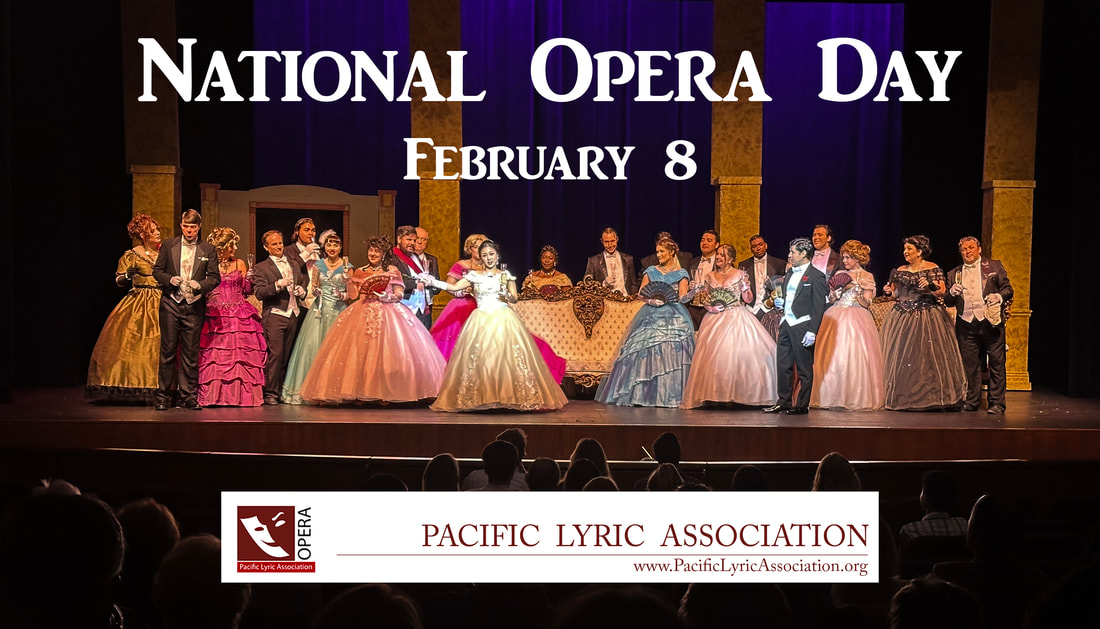

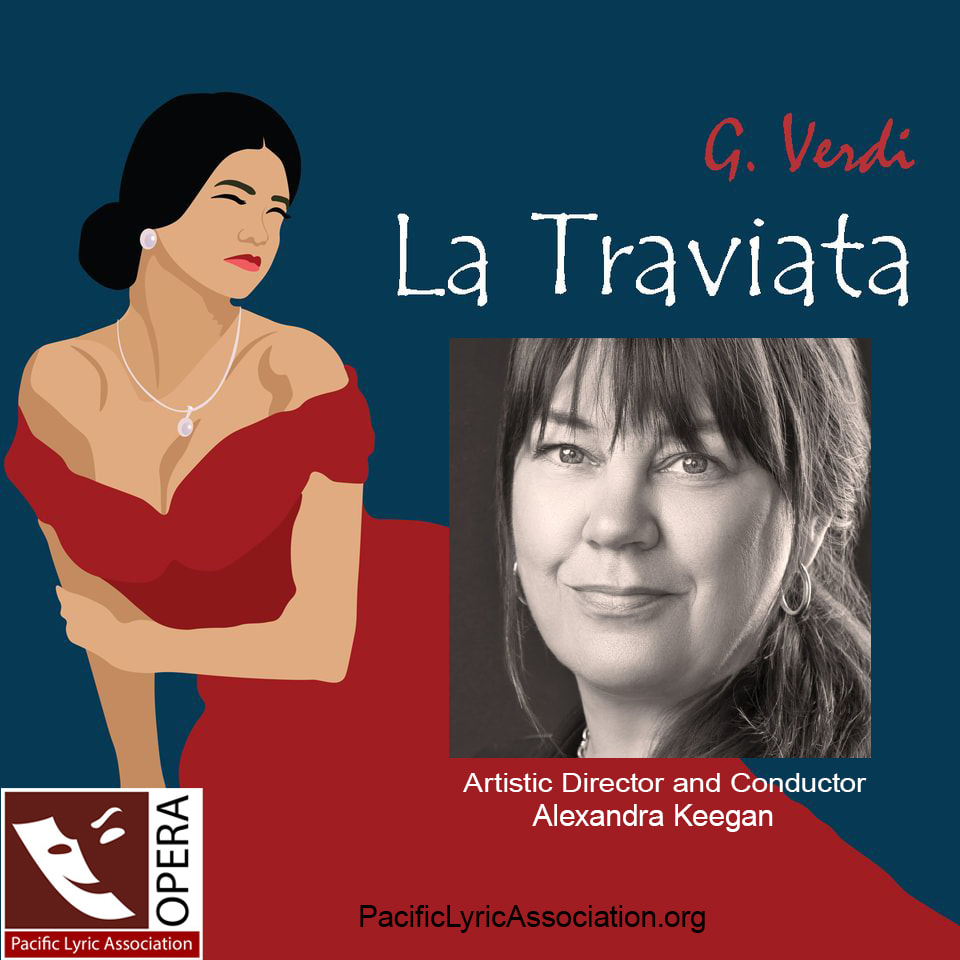
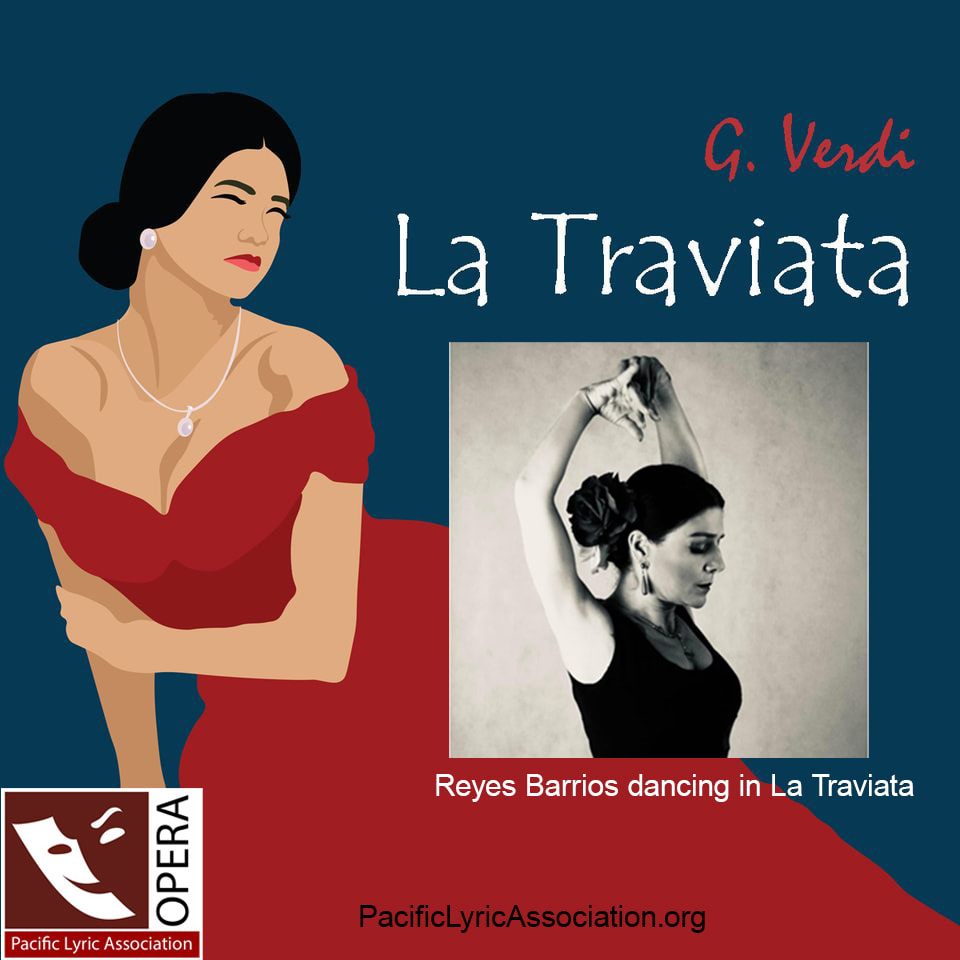
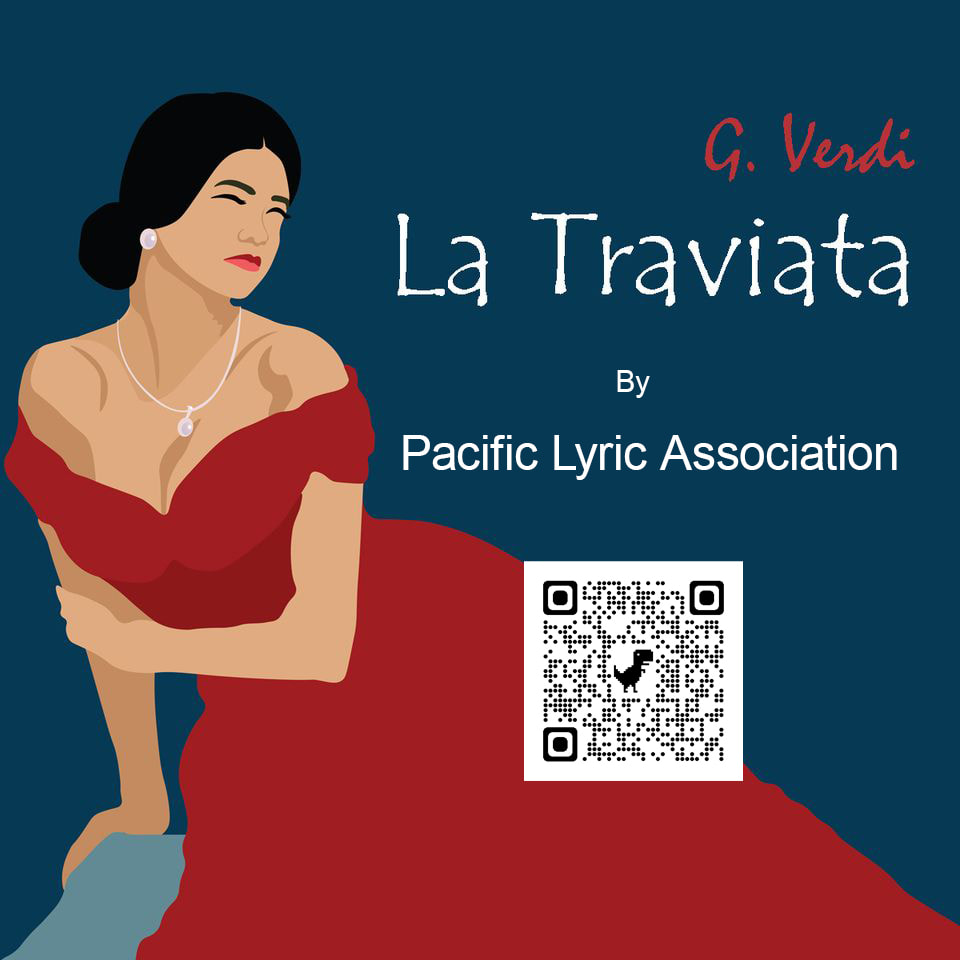
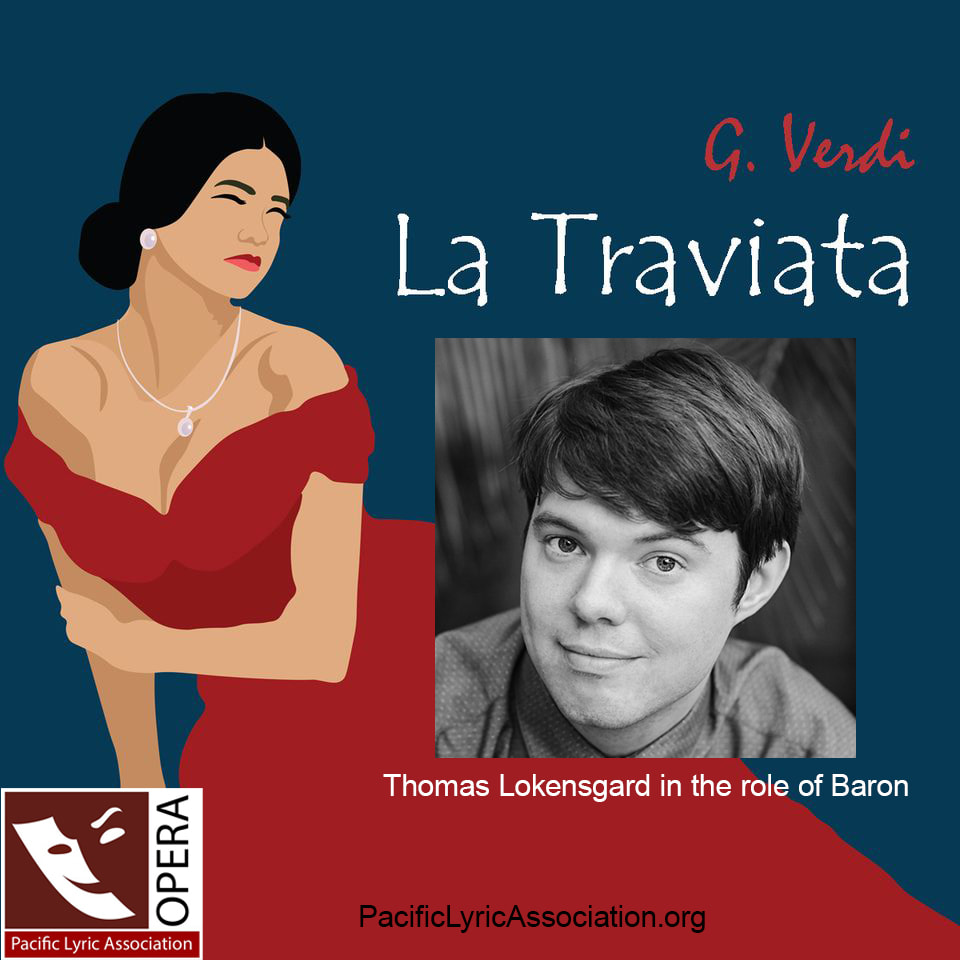
 RSS Feed
RSS Feed